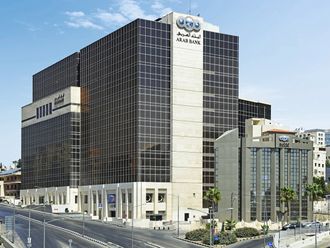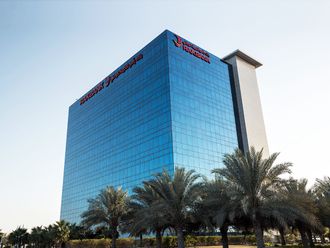Dubai: Despite a substantial decline in government revenues of Kuwait following the sustained decline in oil prices, the country continues to report budget surpluses, thanks to government’s fiscal management policies.
Kuwait’s government finances remained in surplus over 2015-16, though lower than the higher surplus in the prior year, as a surplus of 9.4 per cent of total revenues was recorded over the period.
Total government revenues for Kuwait plunged by 38 per cent year on year to 17.7 billion Kuwaiti dinars during 2015- 16 as compared to 28.7 billion Kuwaiti dinars during 2014-15. The drop was in large part attributed to the fall in oil revenues, which more than halved, to 12.1 billion Kuwaiti dinars.
Non-oil revenues receded by 9 per cent year on year during the same period to KWD 5.6 billion. On the other hand, expenditure went down by 11 per cent year on year for the same period to 16.1 billion Kuwaiti dinars, despite capital expenditure growing by 13 per cent to reach 2.9 billion Kuwaiti dinars. “As a response to low oil prices, Kuwait’s government has responded adequately which include the establishment of a debt management unit at the Ministry of Finance. Fuel subsidy rationalisation was also implemented in 2016, and implementation of additional excise taxes on harmful items, as well as further utility tariff reforms are expected in the second half of 2017,” said Faisal Hassan, Head of Investment Research at Kuwait based Kamco Research.
Among the GCC states, Kuwait has highest current account surplus in GDP terms and lowest break even oil price for 2017 & 2018 Kuwait is expected to have the highest current account surplus in terms of their GDP with the IMF expecting a surplus of 8.2 per cent and 7.1 per cent of GDP for 2017 and 2018 respectively.
The IMF also estimates Kuwait to have the lowest break even oil price. Kuwait’s budget break even oil price remains the lowest in GCC for 2017 and 2018 at $49.1/bbl and $50.4/bbl, respectively. Credit facilities extended by Kuwaiti banks by the end of the first quarter of 2017 increased by 1.7 per cent to 34.9 billion Kuwaiti dinars. On a y-o-y basis however, credit extended improved by 3.6 per cent year on year.
Saudi turnaround
The launch of the Fiscal Balance 2020 Programme in the second half of 2017, the MSCI Emerging Markets watch list announcement in mid-June, the recent political changes and a possible Aramco IPO in 2018 are likely to mark the start of a fundamental transformation of Saudi Arabia’s economy and public finance, according to analysts at Bank of America Merrill Lynch.
Analysts say that although fiscal targets are unlikely to be met, the Fiscal Balance 2020 Programme will help narrow fiscal imbalances to mid-single digits by 2020.
“Stabilising forex reserves will require oil prices rebounding above $50/bbl and a moderation in capital outflows. Despite forthcoming support measures, fiscal austerity is likely to keep growth muted,” said Jean-Michel Saliba, Meana Economist at Bank of America Merrill Lynch.
Economists say comprehensive reforms under Fiscal Balance 2020 Programme over the period from the second half of 2017 through 2020. These reforms are likely to fundamentally transform the economy’s growth model by removing some sources of competitive advantages in the private sector, altering the social contract, introducing taxation, as well as instituting a social safety net and selective government support to corporates.
The recently released quarterly fiscal data suggest spending is tightly controlled, while the revenue increase is due to higher oil prices and likely a higher transfer ratio from Saudi Aramco. “Larger drawdown from government deposits at SAMA [Saudi Arabian Monetary Agency] (50 billion Saudi riyals in the first quarter of 2Q17, which is 1.9 per cent of GDP) suggests underreporting in the deficit. We think this is due to the ongoing repayment of government arrears (30 billion Saudi riyals). The larger drop in FX reserves than implied by the fiscal imbalance suggests that capital outflows (partly linked to FX demand following repayment of government arrears) have continued,” said Saliba.












